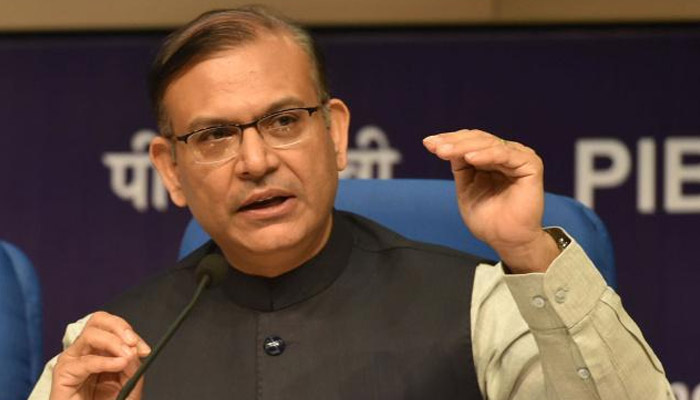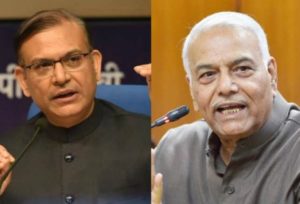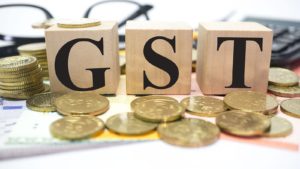Yashwant Sinha versus Jayant Sinha on GDP growth

Word-War
Son says GST and demonetisation are structural reforms, father missed it .

Senior BJP leader and former finance minister Yashwant Sinha and his son Jayant Sinha, who has worked with finance minister Arun Jaitley as minister of state finance and is currently MoS for civil aviation, have crossed swords on the current state of the Indian economy. In what is turning out to be a Sinha versus Sinha economic debate, the father has criticised both demonetisation and GST.
The son, on the other hand, sees GST, demonetisation and digital payments as game-changing efforts to formalise India’s economy. Transactions that were taking place outside of the tax net and in the informal sector are now being brought into the formal sector which will lead to higher revenue collection, he has pointed out.
Yashwant Sinha in a newspaper article on Wednesday stated that while “demonetisation has proved to be an unmitigated economic disaster, a badly conceived and poorly implemented GST has played havoc with businesses and sunk many of them and countless millions have lost their jobs with hardly any new opportunities coming the way of the new entrants to the labour market.”
Yashwant Sinha further states that private investment has shrunk as never before in two decades, industrial production has all but collapsed, agriculture is in distress, construction industry, a big employer of the work force, is in the doldrums, the rest of the service sector is also in the slow lane, exports have dwindled, sector after sector of the economy is in distress.

In the article which essentially targets Jaitley, he has also said that for quarter after quarter, the growth rate of the economy has been declining until it reached the low of 5.7 per cent in the first quarter of the current fiscal. A day after his father’s article appeared , Jayant came up with what is an obvious rebuttal but without overtly mentioning senior Sinha’s name.
“Several articles have been written recently on the challenges facing the Indian economy. Unfortunately, these articles draw sweeping conclusions from a narrow set of facts, and quite simply miss the fundamental structural reforms that are transforming the economy,” Jayant wrote a signed article for a leading daily.
Moreover, one or two quarters of GDP growth and other macro data are quite inadequate to evaluate the long-term impact of the structural reforms underway, he added. Jayant has pointed out that “the structural reforms unleashed by the Modi government since 2014 constitute the third generation of reforms since the first generation of reforms initiated in 1991 and the second generation in the 1999-2004 NDA government.
Unlike the first and second generation of reforms, this third generation of reforms balances a better life for all Indians with the requirements of an advanced, sophisticated 21st century economy.” He has also highlighted at length the inclusive development undertaken by the Modi government.
Virtually every Indian will now have a basic safety net guaranteeing food, electricity, some employment, housing, a bank account, toilets, gas-based cooking, insurance coverage, micro-loans, and an all-weather road, he states. In parallel small and large enterprises will be able to flourish in a transparent, rule-based environment that provides necessary facilities and financing. We are creating a robust new economy,” he added.
- News Gateway Desk